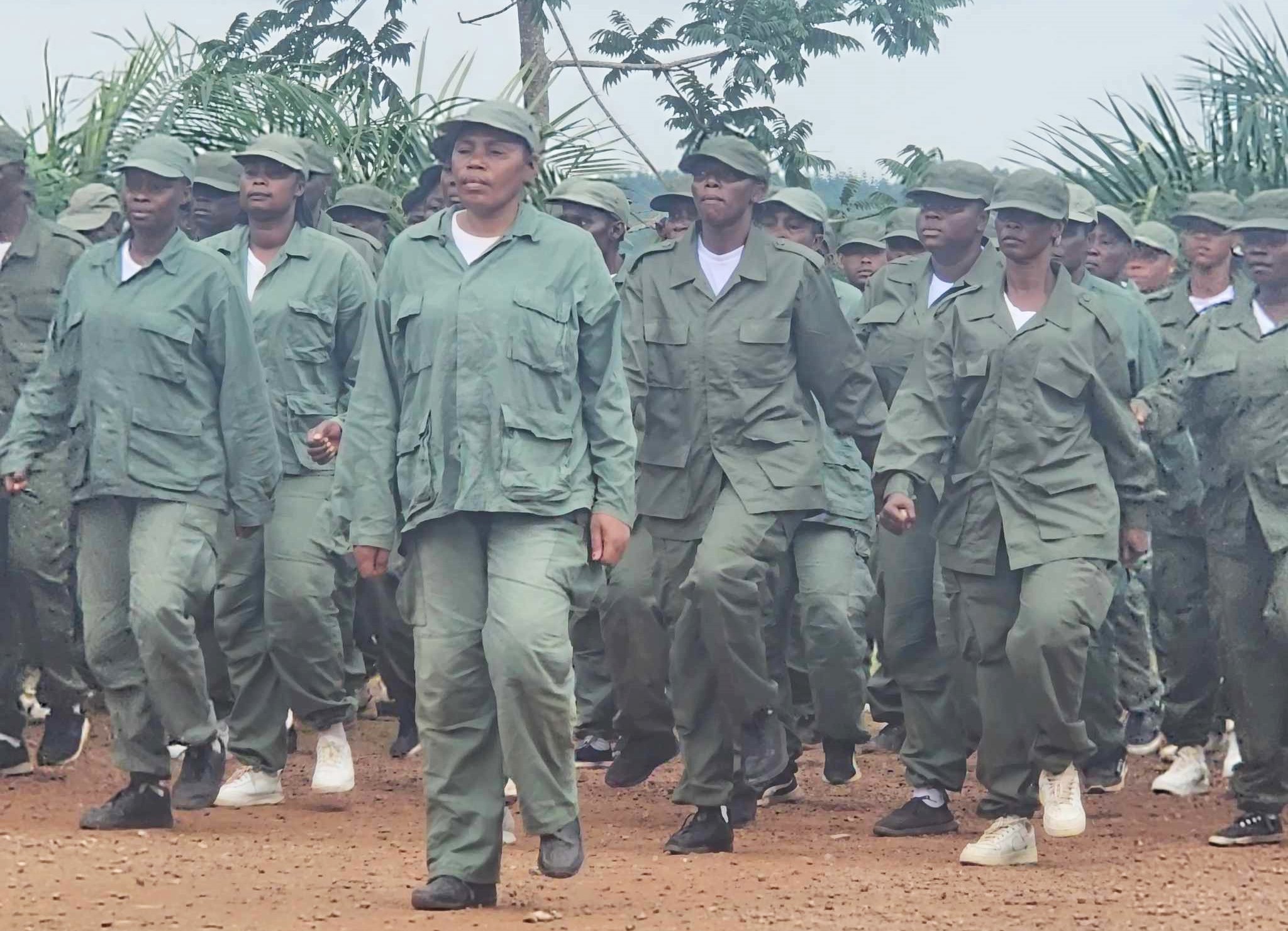Specialized Training Conducted for Apprentice Officers of the LIS
August 21, 2023

A section of the LIS apprentice officers in training.
The Government of Liberia and the United Nations Joint Rule of Law Programme managed by UNDP have conducted a six-day specialized in-service training for 140 apprentice officers of the Liberia Immigration Service (LIS).
These officers were trained in immigration formalities and other relevant courses which will allow them to form part of the Institution’s professional team that is working to ensure effective border management across the Country.
Speaking during the formal closing ceremonies at the Gbarnga Regional Hub in Bong County, on Friday, 18 August 2023, the Pillar Head for UNDP Liberia Inclusive Governance Portfolio, James Monibah said the training is part of the reform process that commenced in 2016, to build the institution’s capacity consistent with international standards and ensure that the principles of human rights and other standards are respected as well as the LIS code of conduct.
James Monibah expressed hope that the training will transform the apprentice officers into professionals and build their capacities to perform their duties effectively including elections, in line with LIS’ ethics, standards, and functions.
Considering the limited number of paramilitary personnel, these graduates couldn’t have come any better time than this in lieu of the need to contribute to enhancing elections security. It is good to have trained and professional security personnel to execute their duties with caution and best practices in support of peaceful elections,” Monibah stressed.
He emphasized that such support reflects the commitment of UNDP to working with the Government of Liberia to strengthen national institutions to perform their statutory duties. Monibah urged the graduates to serve well, encouraging them to use the training as a tool for professionalism in support of the rule of law sector.
“To the graduates, you represent the face of the LIS and your efficiency and performance consistent with the training you have acquired will measure the efficiency of the institution,” he noted.
Speaking on behalf of the Commissioner General, the Deputy Commissioner for Administration, Moses K. Yebleh, reminded the graduate about their service to the nation above all others, highlighting that the LIS was not a place to get rich or make quick money and adding that the only way an officer can be recognized, promoted, and can move ahead is through consistent training.
“You are the mirror of the country through which strangers assess Liberia upon their arrival. Be a good example and present a good image out there,” Commissioner Yebleh noted. He also reminded the officers of their responsibilities to be disciplined, professional, and hardworking as they execute their duties with integrity.
“In law enforcement, if you do not have a class that you are a part of with other colleagues, you are a non-entity and you are mocked by your colleagues,” said Commissioner Yebleh. He congratulated the facilitators, trainers, and UNDP for the level of support amid the global financial meltdown and for their tireless effort and sacrifice made to train the recruits.
As part of remarks from the Armed Forces of Liberia (AFL) and the Deputy Commissioner, Asaatu Bah Kenneth, Commissioner Kenneth admonished the officers to exhibit the highest level of professionalism in the execution of their duties urging them to preserve the integrity of the LIS in Liberia with humility.
Since 2017, UNDP worked with the LIS under the Joint Rule of Law Programme through the administration of placement exams and In-service training.
To date, a total of one thousand thirty-eight (1,038) LIS personnel have completed the In-Service training while one thousand nine hundred and fifty-one (1,951) officers of all categories have completed the placement exams.
The placement exams allow the institution to be on par with its counterparts in the region as a para-military ranking structure and fully-fledged civil institution.

 Locations
Locations